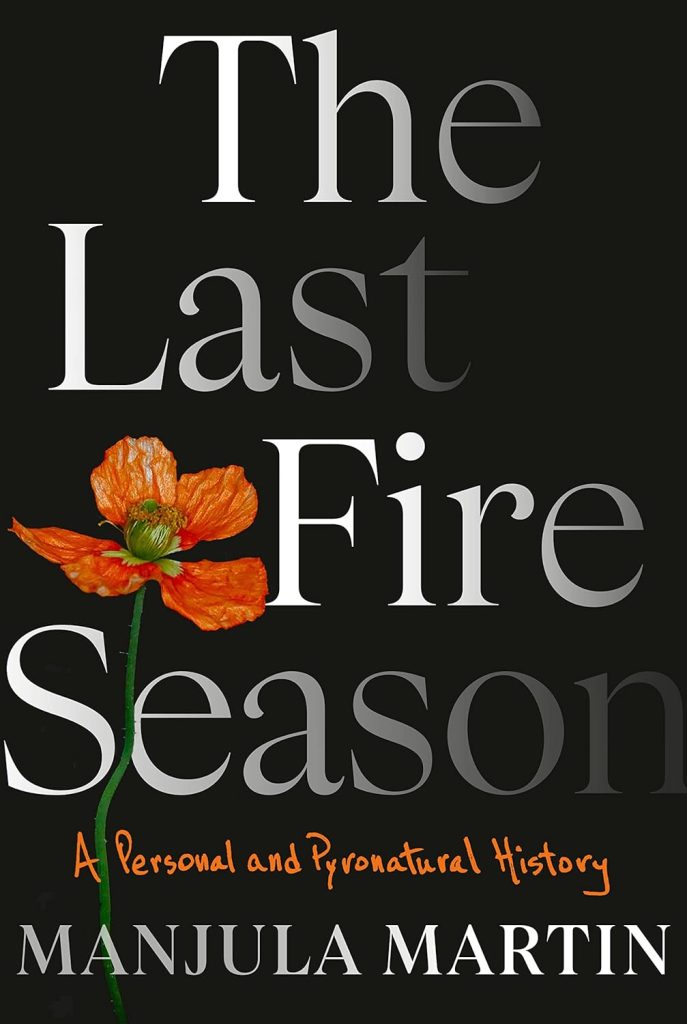Join in an author event with Manjula Martin for “The Last Fire Season.”
BOOK LAUNCH DETAILS
3/27/2024 at 6:00 PM
SAUSALITO BOOKS BY THE BAY
100 BAY ST
SAUSALITO, CA 94965-2184
About the Author:
MANJULA MARTIN is coauthor, with her father, Orin Martin, of Fruit Trees for Every Garden, which won the 2020 American Horticultural Society Book Award. Her nonfiction has appeared in The New Yorker, Virginia Quarterly Review, The Cut, Pacific Standard, Modern Farmer, and Hazlitt. She edited the anthology Scratch: Writers, Money, and the Art of Making a Living; was managing editor of Francis Ford Coppola’s literary magazine, Zoetrope: All-Story; and has worked in varied editorial capacities in the nonprofit and publishing sectors. She lives in West Sonoma County, California.

About the Book:
H Is for Hawk meets Joan Didion in the Pyrocene in this arresting combination of memoir, natural history, and literary inquiry that chronicles one woman’s experience of life in Northern California during the worst fire season on record.
Told in luminous, perceptive prose, The Last Fire Season is a deeply incisive inquiry into what it really means—now—to live in relationship to the elements of the natural world. When Manjula Martin moved from the city to the woods of Northern California, she wanted to be closer to the wilderness that she had loved as a child. She was also seeking refuge from a health crisis that left her with chronic pain, and found a sense of healing through tending her garden beneath the redwoods of Sonoma County. But the landscape that Martin treasured was an ecosystem already in crisis. Wildfires fueled by climate change were growing bigger and more frequent: each autumn, her garden filled with smoke and ash, and the local firehouse siren wailed deep into the night.
In 2020, when a dry lightning storm ignited hundreds of simultaneous wildfires across the West and kicked off the worst fire season on record, Martin, along with thousands of other Californians, evacuated her home in the midst of a pandemic. Both a love letter to the forests of the West and an interrogation of the colonialist practices that led to their current dilemma, The Last Fire Season, follows her from the oaky hills of Sonoma County to the redwood forests of coastal Santa Cruz, to the pines and peaks of the Sierra Nevada, as she seeks shelter, bears witness to the devastation, and tries to better understand fire’s role in the ecology of the West. As Martin seeks a way to navigate the daily experience of living in a damaged body on a damaged planet, she comes to question her own assumptions about nature and the complicated connections between people and the land on which we live.














